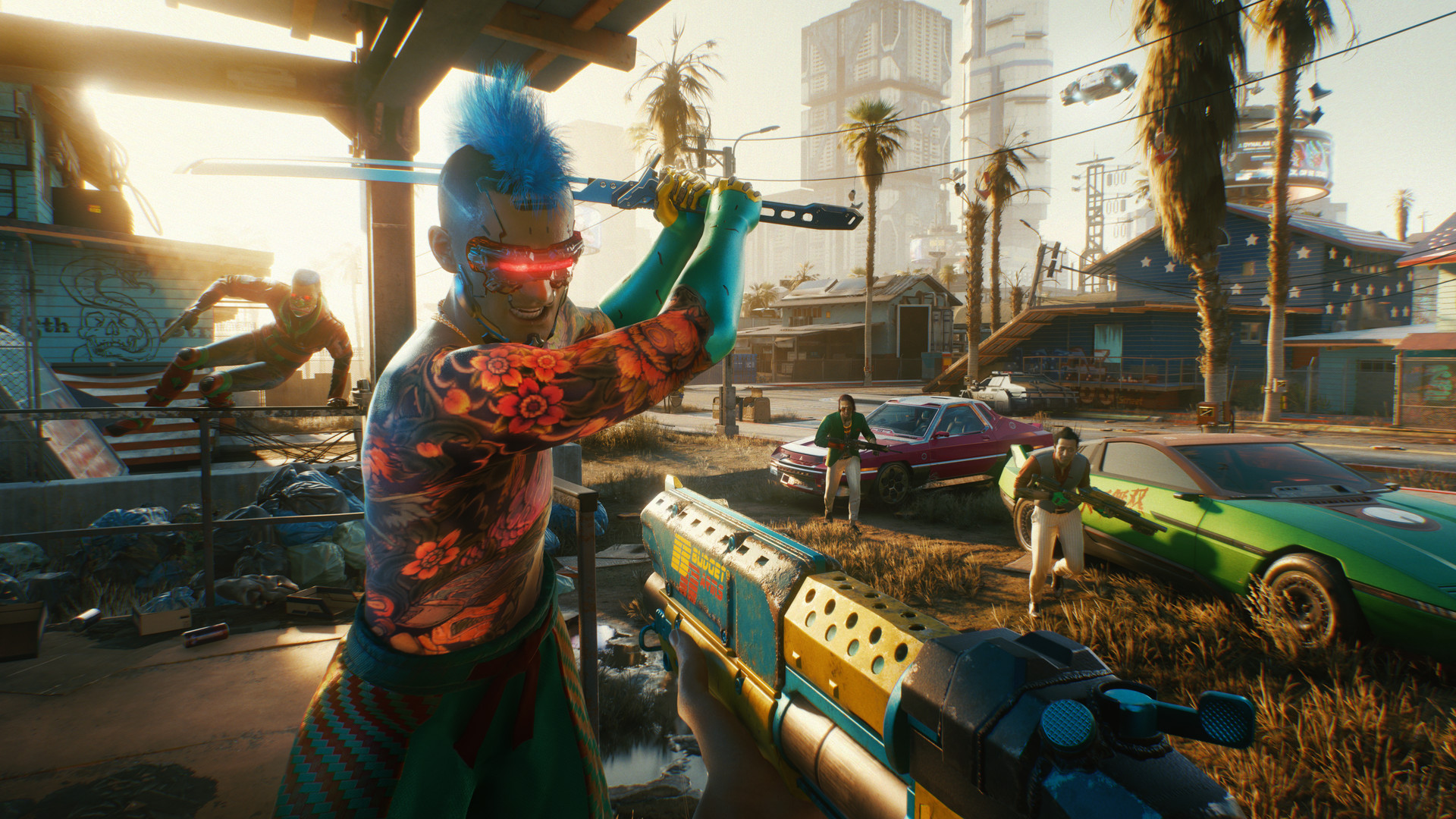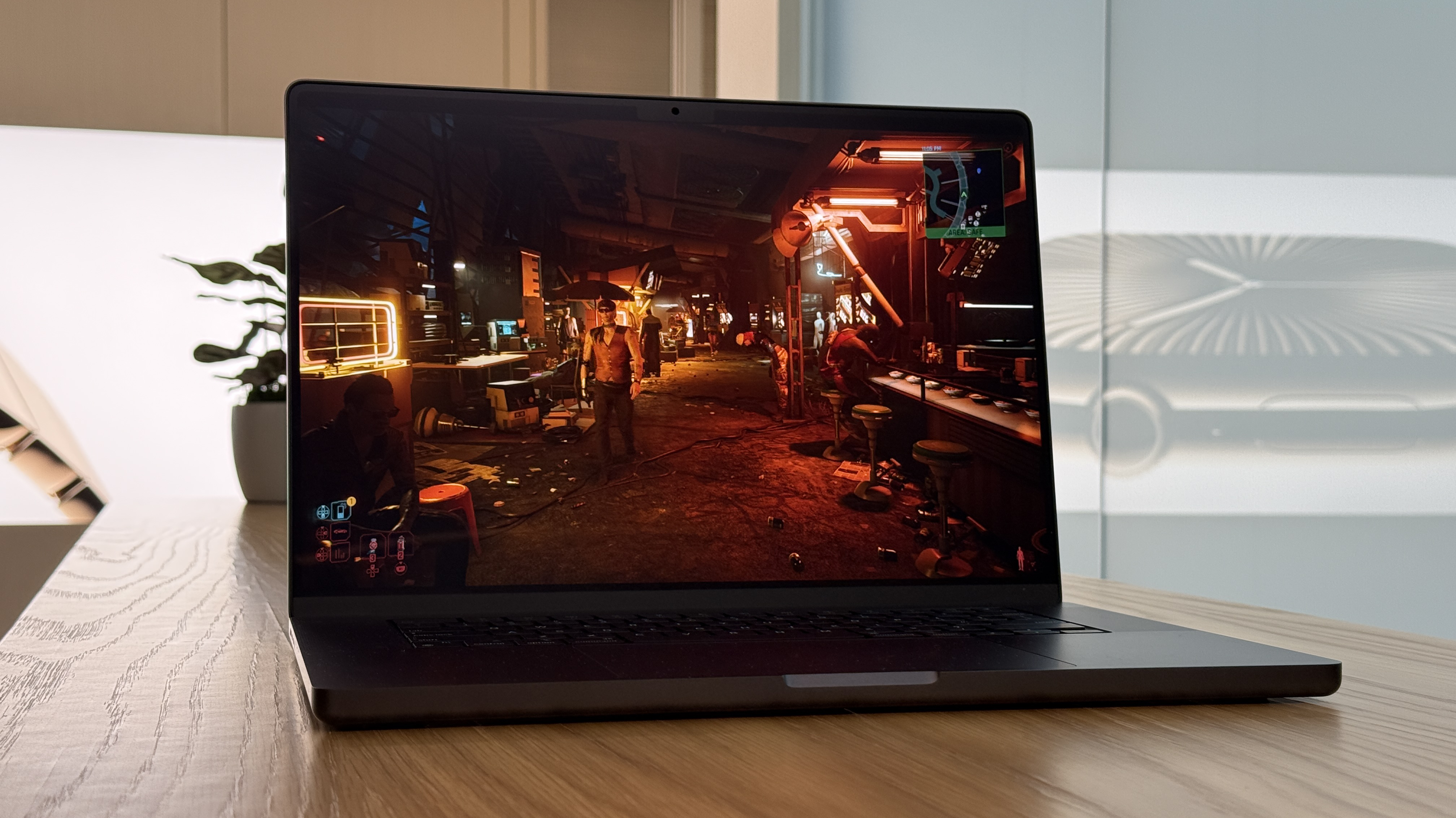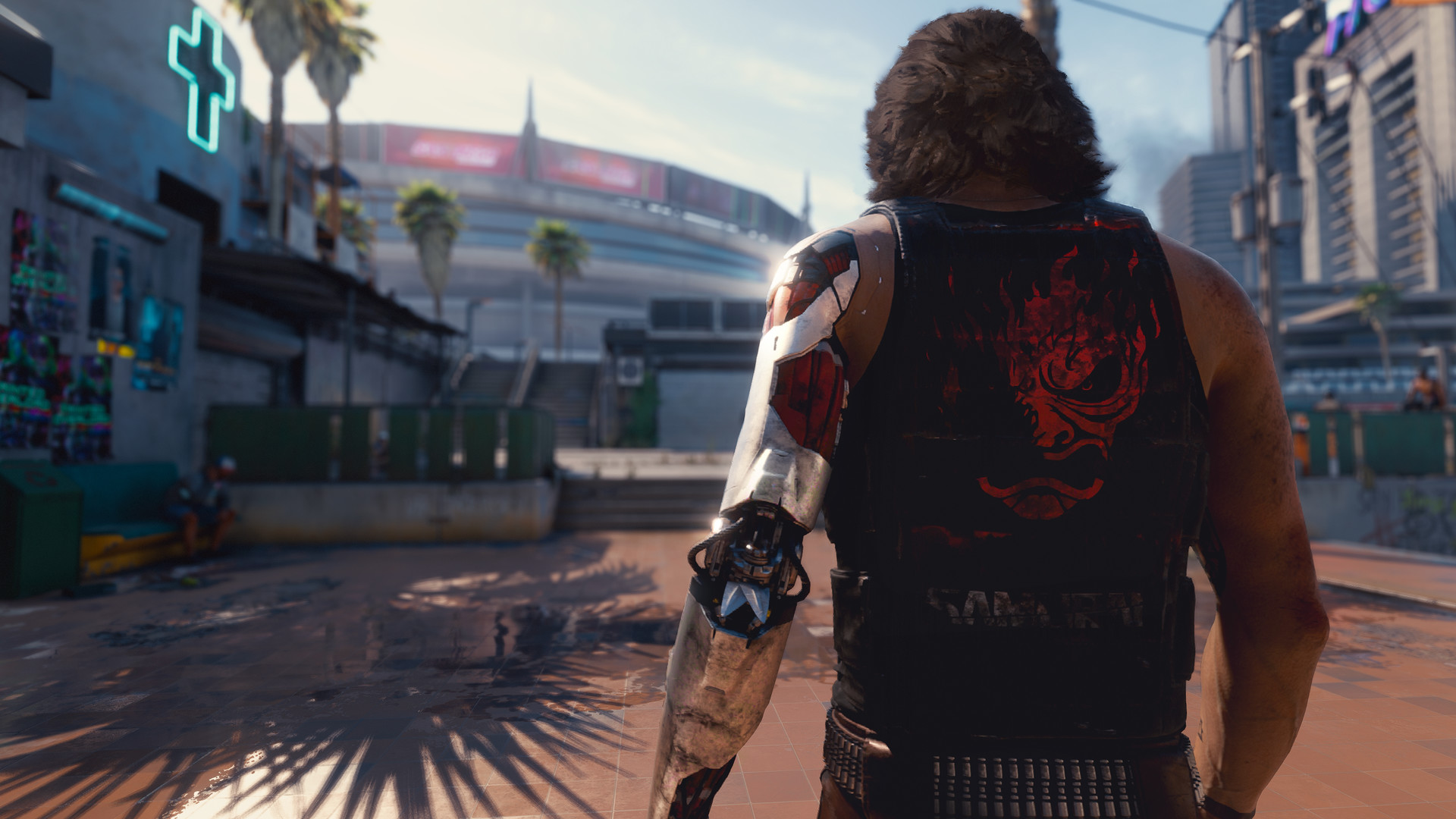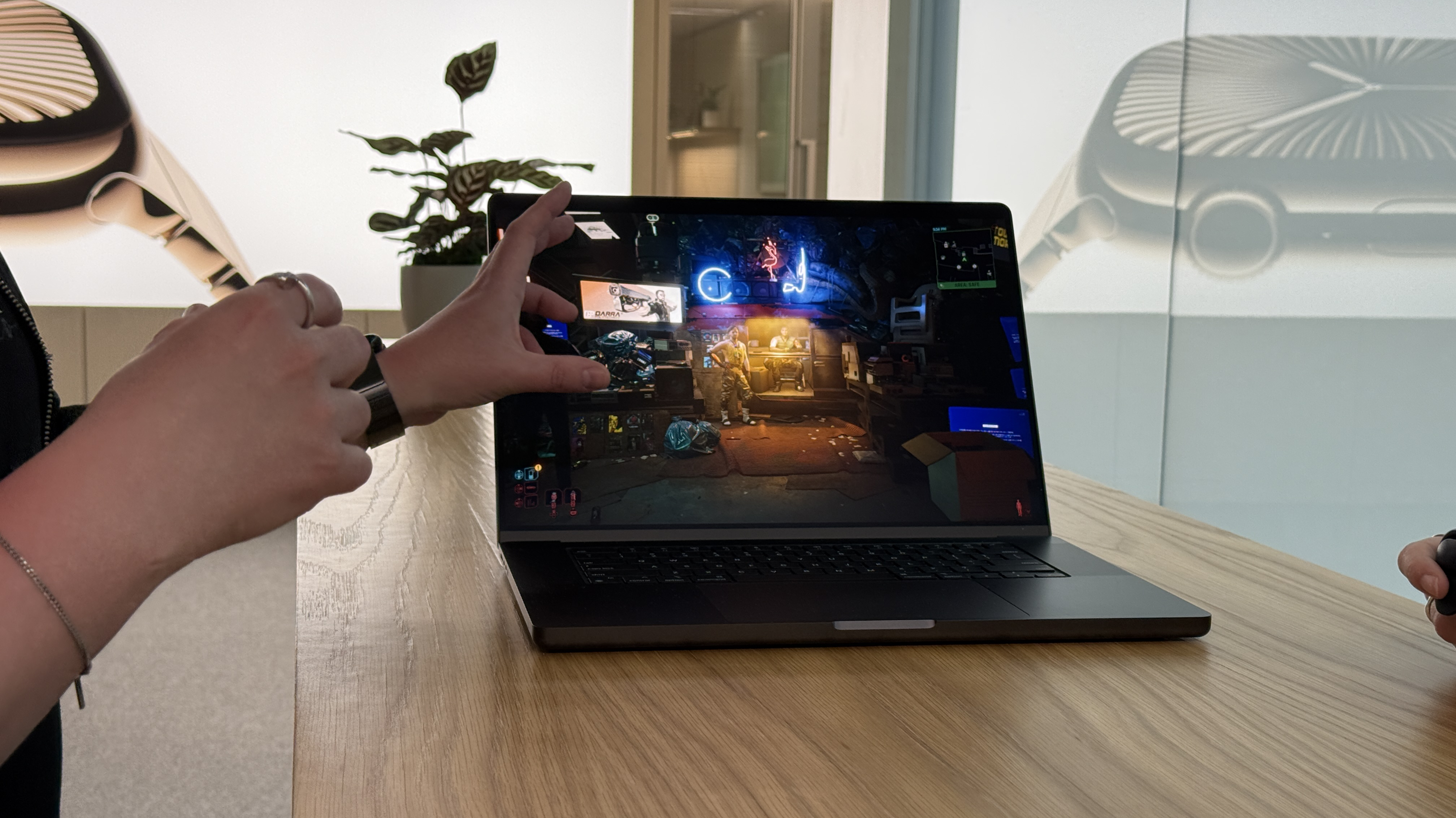Cyberpunk 2077 could be the Mac gaming moment we’ve been waiting for, and it’s all thanks to AI
Making the Mac gaming dream a reality

We’ve been hearing for months that Apple is planning to bring AAA game Cyberpunk 2077: Ultimate Edition to macOS, and yesterday we finally got a release date: it’s due to arrive tomorrow, July 17. It’s the news Mac gamers have been waiting a tortuously long time to hear.
As someone who games on both a PC and a Mac – and who absolutely loves Cyberpunk 2077 and has been playing it for years – I’m super excited to try out one of the best single-player games on my Mac. Because this isn’t just one of my favorite games on one of my favorite computers. No, it looks like Apple and CD Projekt Red are going above and beyond to make this an experience custom-built for Mac gamers. And that means there’s a lot to look forward to.
Game-changing performance

As an Apple gamer, I’m used to performance that lags behind my PC. Don’t get me wrong, Apple silicon has been an absolute gamechanger for Mac gaming, and I can still get decent frame rates in most games on my MacBook Pro. But despite Apple’s lofty claims, it’s always seemed like wishful thinking to imagine that the integrated GPU you find in Apple’s Mac chips can compete with any of the best graphics cards.
That’s why the key detail that leapt out at me from Apple’s announcement was the claim that Cyberpunk 2077 will be able to run on a Mac at 120 frames per second (fps) when using ultra settings. Considering how incredibly demanding Cyberpunk 2077 is, that’s bona fide gaming PC performance and would be a massive step up for Mac players.
If that’s what you can potentially eke out of a game like Cyberpunk 2077, then other, less-demanding games could perform even better. Sure, MacBook Pro displays are limited to 120fps, but you might be able to max out all settings and still hit that refresh rate in other titles. It’s an enticing thought.

Of course, everything depends on which chips will be able to achieve this kind of output. Apple hasn’t given any specifics here, but when we went hands-on with Cyberpunk 2077 on a Mac, it reached 120fps at ultra settings using an M4 Max chip. It’s unlikely that lower-rated chips will hit those numbers too – I’m not holding out too much hope for my M1 Pro MacBook Pro – but we’ll have to see how they perform when we get some testing time with the game.
Interestingly, software is seemingly just as important here as hardware. Yes, a high-end chip will undoubtedly help you reach those sky-high numbers, but some of the most interesting tidbits from Apple’s Cyberpunk 2077 announcement were related to software.
Sign up for breaking news, reviews, opinion, top tech deals, and more.
For instance, Apple said that MetalFX Upscaling would be available on launch, with MetalFX Frame Interpolation and MetalFX Denoising coming later this year. Starting with MetalFX Upscaling, this renders the game at a lower level than your display’s native resolution, then uses artificial intelligence (AI) to scale it up. Nvidia and AMD already have similar techs, and they do a fantastic job (in some cases, the upscaled version actually looks better than the original), so this could be a major boost for macOS.
MetalFX Denoising, meanwhile, will allow “real time path tracing on the game’s highest quality graphics settings,” Apple says, and that’s something that could provide an incredible boost to visual fidelity.
The AI revolution

What’s fascinating to me is that these are all AI technologies. They come at a time when Apple’s headline AI (specifically, Apple Intelligence) is widely perceived to be seriously lagging behind rivals like ChatGPT and Copilot.
Yet while most people envisage chatbots when they think of AI, artificial intelligence is actually far broader, as these gaming techs show. Apple has long been a strong AI performer – its image processing and Siri suggestions being two examples you’ve likely encountered on an iPhone.
Of course, we don’t yet know how well all of these MetalFX techs will perform, with MetalFX Frame Interpolation and Denoising not expected until later this year. But they could counter the argument that Apple is falling behind in AI (a contention that was never the full picture anyway).
Of these AI features, MetalFX Frame Interpolation is the one that has piqued my interest the most. Apple says this generates a new frame for every two input frames, resulting in much smoother gameplay than you would normally be able to achieve.
This is sure to reignite the impassioned “fake frames” debate that has been playing out ever since Nvidia and AMD introduced their own frame-generation features. Yet provided Apple can avoid stutters and jerkiness, I think this is unlikely to bother Mac gamers – for most Apple fans, being able to enjoy smooth framerates on Mac hardware is likely to outweigh any high-level concerns about whether the frames are “real” or “fake.” The true test will be at more modest hardware levels rather than the M4 Max and M3 Ultra we’ve seen Cyberpunk played on so far.
A serious gaming test

And then there are all the other interesting additions that are unique to the Apple edition. This version comes with “dynamically calibrated HDR optimized for Apple XDR displays,” Apple says, alongside Spatial Audio with head tracking (providing you’re listening with a pair of the best AirPods), plus “For this Mac” graphical presets that are “individually optimized for every Apple Silicon Mac model.”
That all makes me think that Apple is trying to do this the right way. It’s making use of its other products and adding its own techs that are tailor-made for its devices, rather than just plugging in upscaling and frame generation tools from Nvidia or AMD and hoping for the best.
The last few years have shown that Apple is taking Mac gaming seriously. Cyberpunk 2077 will be the sternest test of that commitment – but if Apple does it right, it could also be its biggest success story so far.
You might also like

Alex Blake has been fooling around with computers since the early 1990s, and since that time he's learned a thing or two about tech. No more than two things, though. That's all his brain can hold. As well as TechRadar, Alex writes for iMore, Digital Trends and Creative Bloq, among others. He was previously commissioning editor at MacFormat magazine. That means he mostly covers the world of Apple and its latest products, but also Windows, computer peripherals, mobile apps, and much more beyond. When not writing, you can find him hiking the English countryside and gaming on his PC.
You must confirm your public display name before commenting
Please logout and then login again, you will then be prompted to enter your display name.